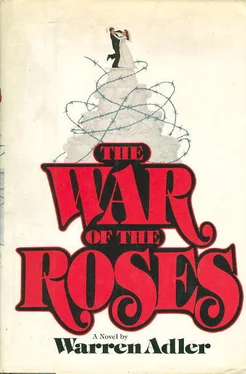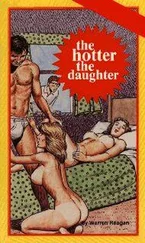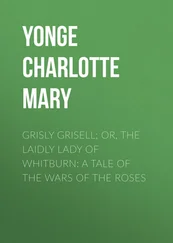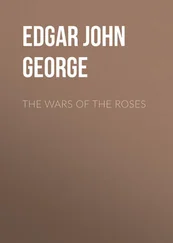It was that kind of woman he had wanted Barbara to be, had imagined she was. His mother’s large bosom was the world’s umbrella. It was safe under there. Warm. Wonderful. Next to her big, generous heart. The tears mattered when they were shed under that umbrella. It chased pain. It made home sweet, sweeter than sweet.
‘She is a good woman,’ his father had confided. And she was that. How he envied him now. Sleeping next to that big pillow of strength and love and safety all those years. What was the jungle compared to that? His mind skipped backward in time and when he looked at his reflection in the car’s side window, he had grown up. He hadn’t lived at home for twenty years and although they were, he was thankful, still loving, their lives were lost somewhere back there in the Framingham of twenty years ago.
He stopped the car and went into a People’s drugstore and called his family. His father answered.
‘Hey, Dad.’ It meant flogging himself to be cheerful.
‘Son.’ Oliver could hear him yell, ‘Molly, it’s Oliver.’ And in a moment his mother had picked up the receiver.
‘Ollie?’
‘Mom.’ He paused, swallowing the hard ball of phlegm that had lodged in his throat. ‘I just put the kids on a bus to camp.’
‘They’re all right?’ She was always suspicious when he called. Outside her home, life was uncertain and dangerous. They exchanged the usual amenities. How is Josh? How is Eve? How is your practice? How is your health? How is it going? That meant the divorce. His parents hadn’t been down to see them since the breakup, although they had seen the children during Barbara’s trip to Boston. Barbara hadn’t come. Deliberately, his mother avoided any mention of Barbara.
‘There’s no way you can make it up?’ his mother asked.
‘No way.’
There was a long pause in which he could read her mind and see her face. Such things didn’t, couldn’t happen in her world. Please, no tears, he begged silently, and after more innocuous words, they hung up swiftly, never having gotten used to long-distance calls. Nevertheless, he walked away comforted, wondering which was truth and which was fiction. Their life. Or his.
He hadn’t intended to go back to the house, but his mind had lost all sense of space and time and before he realized it he had driven the car into the alley. When he saw where he was, he expected Benny to come running and that image brought with it the desire to go for a ride, maybe down to Hains’ Point, where Benny could run around and catch a Frisbee, one of the few tricks Oliver had taught him.
He went into the garden and whistled loudly, two fingers in his mouth. Usually this was enough to disrupt Benny’s perpetual sniffing after bitches. He whistled again. No answer. Then he got in the car and roamed around the neighborhood, offering periodic whistling clarions. Benny slept at the foot of his bed, and although he snored and sometimes forgot that he wasn’t outside, Benny was, as Oliver acknowledged to himself, better than no one. A lot better.
Paradoxically, the irony cheered him. To think that the only loving member of his family in town was nothing but a mangy schnauzer amused him. At least Benny was sympathetic to his troubles, and on many an occasion during the past trying months Oliver had poured out his heart to him. Some things simply had to be said out loud. And Benny had looked at him thoughtfully, big brown eyes smoldering with alertness, head cocked, ears standing up rigidly.
‘You cute, horny bastard,’ he said when Benny looked at him that way, offering the mutt a hug, which required a special tolerance for Benny’s usual gamey aroma.
It cheered him to think that he still had Benny and even his disappointment at not finding him couldn’t dispel the sudden sense of optimism. Searching for him killed enough time for the movies to open and he sat through two Woody Aliens at the Biograph, surprised that he could still laugh after having seen them for the fourth or fifth time.
He ate two roast-beef sandwiches and fries at a Roy Rogers and headed home, keeping the terror of his loneliness at bay as he listened for Benny’s familiar greeting. Benny usually waited for him, stretched supine under one of the bushes along the perimeter of the house, springing up to cuddle his master’s leg. Oliver’s coming in by car always confused Benny, since he had to run around to the rear and couldn’t get into the garage. He would stand on his hind legs at the door, waiting for Oliver to open it, then lunge playfully, invariably muddying up Oliver’s suit.
Benny still wasn’t there. But still it wasn’t time to panic. Often Benny would straggle home late at night or early in the morning. Sometimes Oliver would leave the back door ajar and Benny would push his way in and scratch at the door to Oliver’s room. Still asleep, he would get up, open the door, and let the dog in.
Lying there in the large, canopied bed, alone, Oliver listened to the sounds of the house, a rhythm he knew as well as his own heartbeat. The absence of the children and Ann was tangible and he could sense the emptiness around him. Somehow their presence in the house gave him some sense of belonging, of cohesiveness. And the house itself, its very familiarity, offered some comfort. His womb, he thought, wondering if Barbara, too, felt this same sensation. He sensed her lurking in what was once their bed across the hall. ‘Lurking’ was the word that had come to mind. And he saw her curled in the embryo position, listening, as he was now, to the sounds of the house.
Unable to sleep, he got out of bed and searched the room for a vodka bottle. Finding one, he poured some into a tumbler, then opened the window and brought in a small carton of orange juice from the ledge. There wasn’t much left and he emptied it into the glass and drank it hurriedly.
Then he went back to bed and quickly began to slip into drowsiness. Before he could get to sleep, he heard a scratching on the door.
Benny.
Without opening his eyes, he got up, opened the door, and heard Benny pad to his accustomed spot on the Art Deco rug. Oliver got back into bed, feeling better, relieved.
It began as an abstraction. First came the loss of time. Then a burst of colors exploded in his brain and he opened his eyes. The room had become a toy kaleidoscope, with the patterns constantly changing.
He sat up, startled, rubbed his eyes, but the patterns merely changed. They did not go away. The Hepplewhite secretaire grew bloated as he looked at it and the file cabinets seemed to be floating in midair. Reaching out, he tried to touch one. It seemed to evaporate.
But when he looked up at the canopy and saw it descending on him, as in the famous horror story, he heard a scream. It did not sound like his voice at all -a whiny cackle, like that of a rooster being strangled at sunrise. Jumping off the bed, he felt his knees buckle and he lay on the floor, panting, searching for some shred of reason.
My mind, a faint trickle of logic told him. My mind. He touched his head, which seemed larger, but soft, like a sponge. He sensed something moving near him, something luminous and large, glowing, like a large ball of white fire. It was alive and its breath stank. Something warm and moist covered his face. Sitting up, he watched the apparition. It was monstrous, hideous, moving. He hit it with his fist and heard a strange sound, amplified, bursting in his ears.
His eyes would not focus and he moved back, sliding along the floor, overturning bottles. Some of them crunched under his weight and he felt a stab of pain in his buttocks. He watched the apparition move, then he turned away in horror. He had never felt more terror, as if he had suddenly descended into a special kind of hell.
‘Forgive me,’ he cried, but he could not hear his voice. Crawling on his hands and knees, he groped his way over objects. Looking back, he saw the apparition following. Colors continued to explode in his mind. Every object in the room seemed distorted, out of sync. His body bumped against something cool and hard and some brief trace of logic returned. He was in the bathroom, climbing into the tub. Still the apparition pursued him.
Читать дальше












